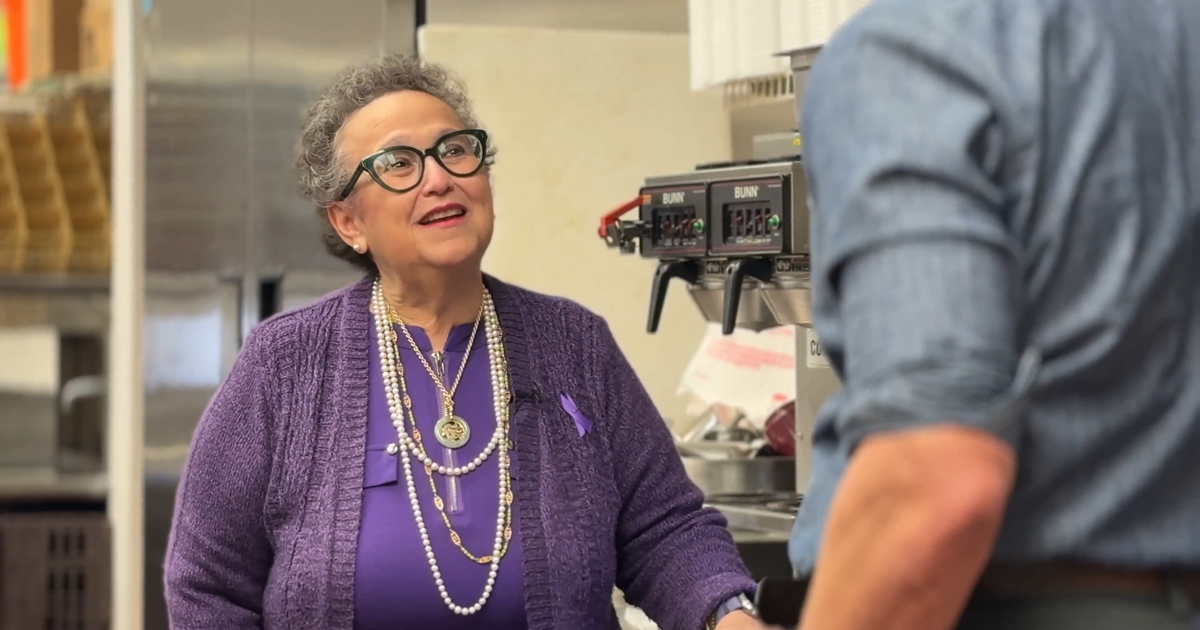WCCO Anchor's Family Hit Hard By Ovarian Cancer
MINNEAPOLIS (WCCO) -- This week, WCCO-TV is featuring the Minnesota Ovarian Cancer Alliance in its Trees of Hope campaign.
Ovarian cancer can be deadly because there are no early detection tests and by the time it's diagnosed, it's often advanced. WCCO-TV's Kim Johnson's family has been touched by the disease after her mother was diagnosed in 2007.
"I love to share my story because maybe I can help somebody else," said Peggy Johnson, Kim's mom.
It all started when part of Peggy's body stopped working.
"My urine wasn't flowing like it should and I advised the doctor at that time and he said women your age always have something going on," she said.
Following his orders, she first saw a urologist. But weeks of tests revealed nothing.
"The urologist said I don't think it's a bladder issue I think you have Multiple Sclerosis, MS, you need a neurologist," she said.
Those tests fortunately came back negative, but took more crucial time. The real problem was growing inside her. Ultimately she'd be the one to discover it.
"When you lay on your back, my stomach is flat I could see a little bulge on my right side, I knew it was a tumor," she said.
Surgery confirmed her suspicions. The tumor had grown to the size of a cantaloupe and it was cancer.
"Of course I was scared," said Peggy.
Peggy said it was frustrating that three months passed and doctors couldn't figure out what was wrong.
"It was extremely frustrating because of the fact that none of the doctors ever gave me a physical exam," she said. "I believe that if they would have physically felt my body maybe they could have felt there was a tumor."
Dr. Jon Nielson of Oakdale Obstetrics and Gynecology, the doctor who diagnosed Peggy, can't stress enough the importance of annual pelvic exams.
"It's important to have a pelvic exam, feel the ovaries to make sure they are not enlarged," he said.
Often symptoms of ovarian cancer are so vague by the time a tumor is found it can be in advanced stages, making the survival rate less than 50 percent.
"If you're getting pelvic exams, you find something early, and you have a better survival rate," said Dr. Nielsen.
Peggy's tumor was so aggressive it grew between her annual exams. But she's thankful she paid attention to her body. The exam she gave herself that day found her cancer early, making her one of only 14 percent of ovarian cancer patients diagnosed stage 1.
"I'm just very grateful and thankful for every day I'm here," she said.
Now Peggy hopes other women will listen to their bodies too and just like her, be their own hero.
"If there is something going on with your body remember, they are the ones in charge of their body," said Peggy. "If the symptoms persist like mine did, get in there and be proactive."
While they may be vague, there are symptoms for ovarian cancer. Doctors say knowing the early signs is key to saving lives.
The symptoms are: bloating, pelvic or abdominal pain, difficulty eating, feeling full quickly and urinary symptoms (urgency or frequency). If you experience, these symptoms for more than three weeks, doctors suggest making an appointment.








